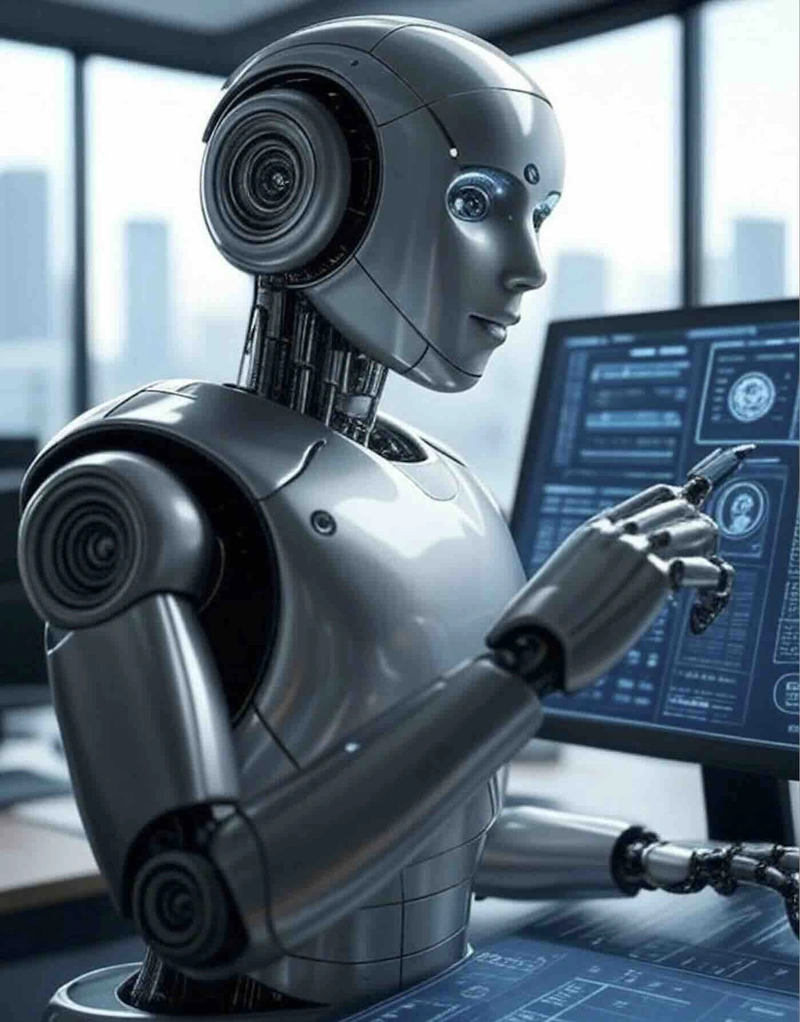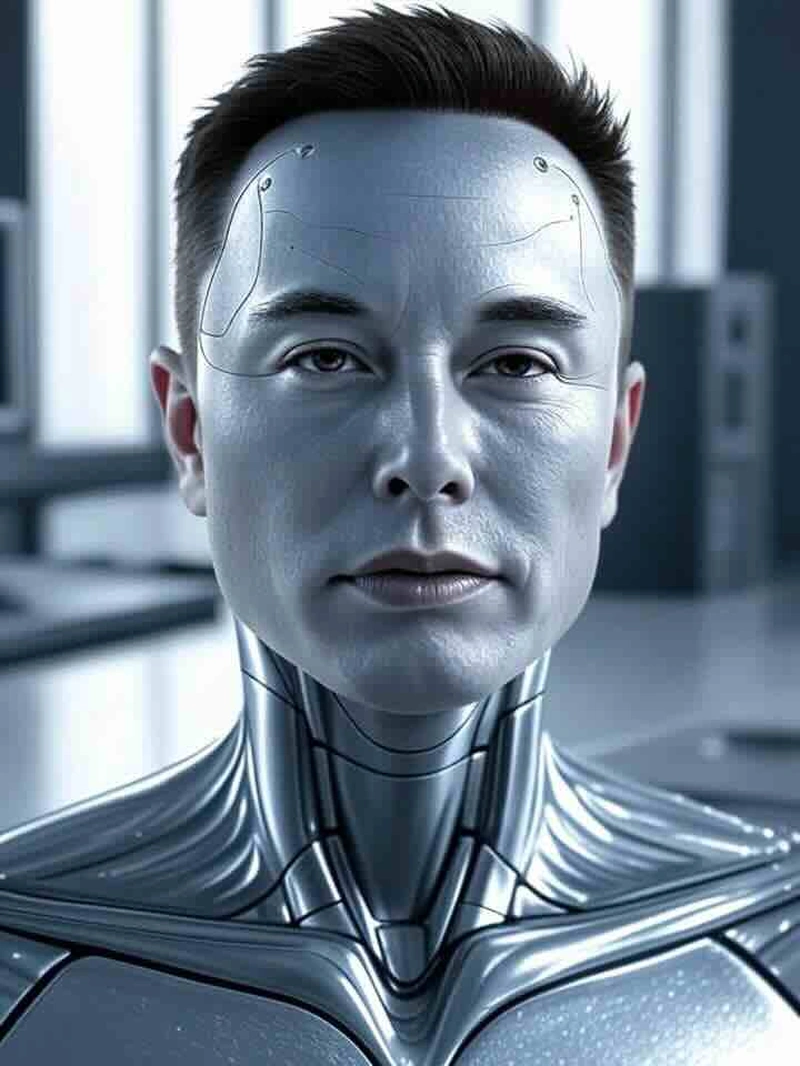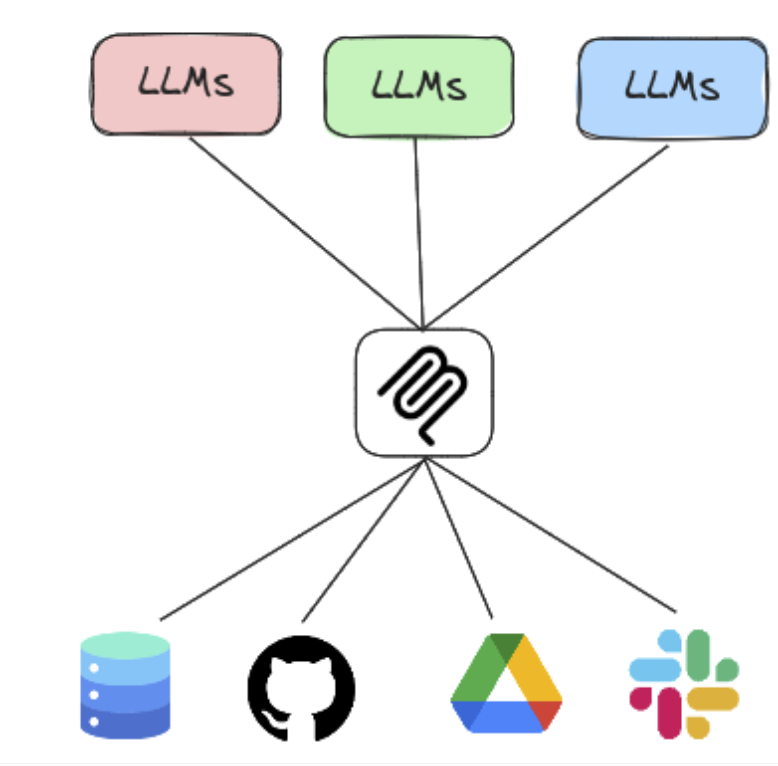AI Agents: Revolutionising Industries with Intelligent Automation
AI Agents and the Future of intelligent automation

Artificial Intelligence (AI) agents are transforming how businesses, individuals, and organizations operate by automating complex tasks, enhancing decision-making, and enabling personalized experiences. These intelligent systems, powered by advanced machine learning, natural language processing (NLP), and data analytics, act autonomously or semi-autonomously to achieve specific goals. From customer service to healthcare, AI agents are reshaping industries by providing scalable, efficient, and innovative solutions. This article explores the diverse use cases of AI agents across various sectors, highlighting their impact and potential.
What Are AI Agents?
AI agents are software entities that perceive their environment, process information, and take actions to achieve predefined objectives. Unlike traditional software, AI agents leverage machine learning, deep learning, and NLP to learn from data, adapt to new situations, and interact with humans or systems in a context-aware manner. They can operate independently, make decisions, and improve over time, making them versatile tools for automation and problem-solving.
Examples of AI agents include virtual assistants like Siri or Alexa, chatbots handling customer inquiries, autonomous trading systems in finance, and recommendation engines on streaming platforms. Their applications span industries, and their capabilities continue to evolve with advancements in AI technology. #VirtualAssistants #MachineLearning #NLP
Key Use Cases of AI Agents
1. Customer Service and Support
AI agents are revolutionizing customer service by providing 24/7 support, reducing response times, and improving customer satisfaction. Chatbots and virtual assistants powered by NLP can handle a wide range of inquiries, from answering FAQs to troubleshooting technical issues. #CustomerService #Chatbots
- Use Case: E-commerce Support
- AI agents assist customers in online shopping by answering product-related questions, recommending items based on preferences, and processing returns. For instance, an AI chatbot on an e-commerce platform can guide a customer through the checkout process or resolve shipping issues in real time.
- Impact: Companies like Amazon and Shopify use AI agents to handle millions of customer interactions daily, reducing the need for human agents and cutting operational costs by up to 30%, according to industry reports.
- Example: Sephora’s chatbot on its website helps customers find makeup products by analyzing their preferences and skin type, enhancing the shopping experience. #Ecommerce #CustomerExperience
2. Healthcare and Medical Diagnostics
AI agents are making significant strides in healthcare by assisting with diagnostics, patient care, and administrative tasks. These agents analyze vast datasets, such as medical records and imaging, to provide insights that support doctors and improve patient outcomes. #Healthcare #MedicalAI
- Use Case: Disease Detection
- AI agents equipped with computer vision can analyze medical images (e.g., X-rays, MRIs) to detect conditions like cancer or cardiovascular diseases with high accuracy. For example, Google Health’s AI model can identify breast cancer from mammograms with precision comparable to human radiologists.
- Use Case: Virtual Health Assistants
- AI agents act as virtual nurses, reminding patients to take medications, monitoring symptoms, and providing health tips. Babylon Health’s AI chatbot triages symptoms and suggests whether a patient needs urgent care or a routine visit.
- Impact: AI agents reduce diagnostic errors, streamline workflows, and enable remote patient monitoring, saving healthcare systems billions annually while improving access to care. #HealthTech #Diagnostics
AI Agents: Revolutionizing Industries with Intelligent Automation
#AI #ArtificialIntelligence #Automation #IntelligentAgents
Artificial Intelligence (AI) agents are transforming how businesses, individuals, and organizations operate by automating complex tasks, enhancing decision-making, and enabling personalized experiences. These intelligent systems, powered by advanced machine learning, natural language processing (NLP), and data analytics, act autonomously or semi-autonomously to achieve specific goals. From customer service to healthcare, AI agents are reshaping industries by providing scalable, efficient, and innovative solutions. This article explores the diverse use cases of AI agents across various sectors, highlighting their impact and potential.
What Are AI Agents?
AI agents are software entities that perceive their environment, process information, and take actions to achieve predefined objectives. Unlike traditional software, AI agents leverage machine learning, deep learning, and NLP to learn from data, adapt to new situations, and interact with humans or systems in a context-aware manner. They can operate independently, make decisions, and improve over time, making them versatile tools for automation and problem-solving.
Examples of AI agents include virtual assistants like Siri or Alexa, chatbots handling customer inquiries, autonomous trading systems in finance, and recommendation engines on streaming platforms. Their applications span industries, and their capabilities continue to evolve with advancements in AI technology. #VirtualAssistants #MachineLearning #NLP
Key Use Cases of AI Agents
1. Customer Service and Support
AI agents are revolutionizing customer service by providing 24/7 support, reducing response times, and improving customer satisfaction. Chatbots and virtual assistants powered by NLP can handle a wide range of inquiries, from answering FAQs to troubleshooting technical issues. #CustomerService #Chatbots
- Use Case: E-commerce Support
- AI agents assist customers in online shopping by answering product-related questions, recommending items based on preferences, and processing returns. For instance, an AI chatbot on an e-commerce platform can guide a customer through the checkout process or resolve shipping issues in real time.
- Impact: Companies like Amazon and Shopify use AI agents to handle millions of customer interactions daily, reducing the need for human agents and cutting operational costs by up to 30%, according to industry reports.
- Example: Sephora’s chatbot on its website helps customers find makeup products by analyzing their preferences and skin type, enhancing the shopping experience. #Ecommerce #CustomerExperience
2. Healthcare and Medical Diagnostics
AI agents are making significant strides in healthcare by assisting with diagnostics, patient care, and administrative tasks. These agents analyze vast datasets, such as medical records and imaging, to provide insights that support doctors and improve patient outcomes. #Healthcare #MedicalAI
- Use Case: Disease Detection
- AI agents equipped with computer vision can analyze medical images (e.g., X-rays, MRIs) to detect conditions like cancer or cardiovascular diseases with high accuracy. For example, Google Health’s AI model can identify breast cancer from mammograms with precision comparable to human radiologists.
- Use Case: Virtual Health Assistants
- AI agents act as virtual nurses, reminding patients to take medications, monitoring symptoms, and providing health tips. Babylon Health’s AI chatbot triages symptoms and suggests whether a patient needs urgent care or a routine visit.
Impact: AI agents reduce diagnostic errors, streamline workflows, and enable remote patient monitoring, saving healthcare systems billions annually while improving access to care. 3. Finance and Trading
In the financial sector, AI agents are used for fraud detection, risk assessment, and algorithmic trading. These agents process vast amounts of data in real time, identifying patterns and anomalies that humans might miss. #Finance #Trading
- Use Case: Fraud Detection
- AI agents monitor transactions for suspicious activity, flagging potential fraud in milliseconds. Banks like JPMorgan Chase use AI systems to analyze millions of transactions daily, reducing false positives and improving security.
- Use Case: Algorithmic Trading
- AI agents execute trades based on market trends, historical data, and predictive models. Hedge funds like Renaissance Technologies rely on AI-driven trading agents to optimize portfolios and maximize returns.
- Impact: AI agents enhance financial security and profitability, with algorithmic trading accounting for over 60% of equity trades in major markets, according to industry estimates. #FraudDetection #AlgoTrading
4. Marketing and Personalisation
AI agents enable hyper-personalized marketing by analysing consumer behaviuor, preferences, and demographics. They deliver tailored content, optimize ad campaigns, and predict customer needs. #Marketing #Personalization
- Use Case: Recommendation Systems
- Platforms like Netflix and Spotify use AI agents to recommend movies, shows, or music based on user history and preferences. These systems analyze viewing or listening patterns to suggest content that keeps users engaged.
- Use Case: Dynamic Pricing
- AI agents adjust prices in real time based on demand, competition, and customer profiles. Ride-sharing apps like Uber use AI to implement surge pricing, balancing supply and demand.
- Impact: Personalised marketing driven by AI agents increases customer retention by up to 20% and boosts conversion rates, as reported by McKinsey. #RecommendationSystems #DynamicPricing
5. Manufacturing and Supply Chain Optimisation
AI agents optimise manufacturing processes and supply chain logistics by predicting demand, managing inventory, and automating quality control. #Manufacturing #SupplyChain
- Use Case: Predictive Maintenance
- AI agents monitor equipment performance using IoT sensors, predicting when machines are likely to fail. This allows manufacturers to schedule maintenance proactively, reducing downtime. For example, Siemens uses AI agents to monitor its industrial equipment, saving millions in maintenance costs.
- Use Case: Supply Chain Management
- AI agents forecast demand, optimise shipping routes, and manage inventory levels. Companies like Walmart use AI to streamline their supply chains, reducing waste and improving delivery times.
- Impact: AI-driven optimisation can reduce operational costs by 15–25% and improve delivery efficiency, according to Deloitte. #PredictiveMaintenance #Logistics
6. Education and Personalized Learning
AI agents are transforming education by offering personalised learning experiences and automating administrative tasks. #Education #EdTech
- Use Case: Adaptive Learning Platforms
- AI agents analyse students’ learning styles and performance to tailor educational content. Platforms like Duolingo use AI to adjust lesson difficulty based on user progress, improving language acquisition.
- Use Case: Administrative Automation
- AI agents handle tasks like grading, scheduling, and student inquiries, allowing educators to focus on teaching. For instance, Georgia Tech’s AI teaching assistant, Jill Watson, answers student queries in online courses.
- Impact: AI agents improve student engagement and reduce dropout rates by up to 15%, according to studies by EdTech companies. #AdaptiveLearning #Automation
7. Autonomous Vehicles and Transportation
AI agents are at the heart of autonomous vehicles, enabling self-driving cars, drones, and delivery robots to navigate complex environments. #AutonomousVehicles #Transportation
- Use Case: Self-Driving Cars
- AI agents process data from cameras, LIDAR, and sensors to make real-time driving decisions. Companies like Tesla and Waymo use AI to enable features like lane-keeping, collision avoidance, and full self-driving capabilities.
- Use Case: Drone Delivery
- AI agents control drones for last-mile delivery, optimizing routes and avoiding obstacles. Amazon’s Prime Air program uses AI to deliver packages efficiently.
- Impact: Autonomous transportation reduces accidents caused by human error (90% of crashes, per NHTSA) and lowers logistics costs. #SelfDriving #DroneDelivery
8. Human Resources and Talent Management
AI agents streamline HR processes by automating recruitment, employee engagement, and performance analysis. #HumanResources #HRTech
- Use Case: Recruitment Automation
- AI agents screen resumes, match candidates to job descriptions, and conduct initial interviews. Tools like Mya Systems use AI to engage candidates and reduce hiring time.
- Use Case: Employee Engagement
- AI agents analyse employee feedback and sentiment to identify areas for improvement. Companies like IBM use AI to enhance workplace satisfaction and reduce turnover.
- Impact: AI-driven HR processes reduce hiring costs by up to 20% and improve employee retention, per Gartner. #Recruitment #EmployeeEngagement
Challenges and Considerations
While AI agents offer immense potential, their adoption comes with challenges:
- Ethical Concerns: Bias in AI models can lead to unfair outcomes, such as discriminatory hiring or lending practices. Ensuring fairness and transparency is critical.
- Data Privacy: AI agents rely on vast datasets, raising concerns about user privacy and compliance with regulations like GDPR.
- Job Displacement: Automation may replace certain jobs, necessitating re-skilling programs to support displaced workers.
- Scalability and Costs: Developing and deploying AI agents requires significant investment in infrastructure and expertise.
Addressing these challenges through robust governance, ethical AI design, and continuous monitoring is essential to maximise the benefits of AI agents. #AIChallenges #Ethics
The Future of AI Agents
The future of AI agents is bright, with advancements in generative AI, reinforcement learning, and multi-agent systems driving new possibilities. Emerging trends include:
- Collaborative AI Agents: Teams of AI agents working together to solve complex problems, such as coordinating disaster response or optimising smart cities.
- Human-AI Collaboration: AI agents will increasingly augment human capabilities, acting as co-pilots in fields like design, engineering, and research.
- Generalised AI Agents: Unlike task-specific agents, future AI agents may perform a wide range of tasks across domains, approaching human-like versatility.
- As AI technology evolves, agents will become more autonomous, context-aware, and capable of handling nuanced tasks, further integrating into daily life and business operations. #FutureOfAI #InnovationHealthTech #Diagnostics #AI #ArtificialIntelligence #Automation #IntelligentAgents



